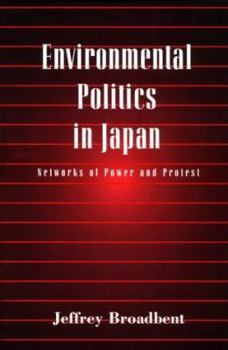Environmental Politics in Japan: Networks of Power and Protest
Select Format
Select Condition 
Book Overview
After World War Two, Japan attained economic growth but suffered environmental disaster. In response to massive protest in the 1960s and 1970s, the Japanese government rapidly reduced the worst air and water pollution. Jeffrey Broadbent's case study of industrial growth and pollution in a rural Japanese prefecture explains this response while testing political, social movement and environmental theory. The state, conservative political party and big business pushed rampant growth until movements posed a political and disruptive challenge. Then, the elites passed some pollution control, but also demobilized local protest, quashed discontent, and prevented the formation of national environmental groups. Without the protest threat, business stymied other government pollution-control plans. The interaction of material, institutional and cultural factors, especially informal institutions, explained the dominance of actors and the pattern of outcomes. Through this syncretic lens in a non-Western setting, this study refines our theories of the state, protest movements, political process, and environmental problems.
Format:Paperback
Language:English
ISBN:0521665744
ISBN13:9780521665742
Release Date:July 1999
Publisher:Cambridge University Press
Length:440 Pages
Weight:1.30 lbs.
Dimensions:0.9" x 6.0" x 9.0"
Customer Reviews
0 rating





